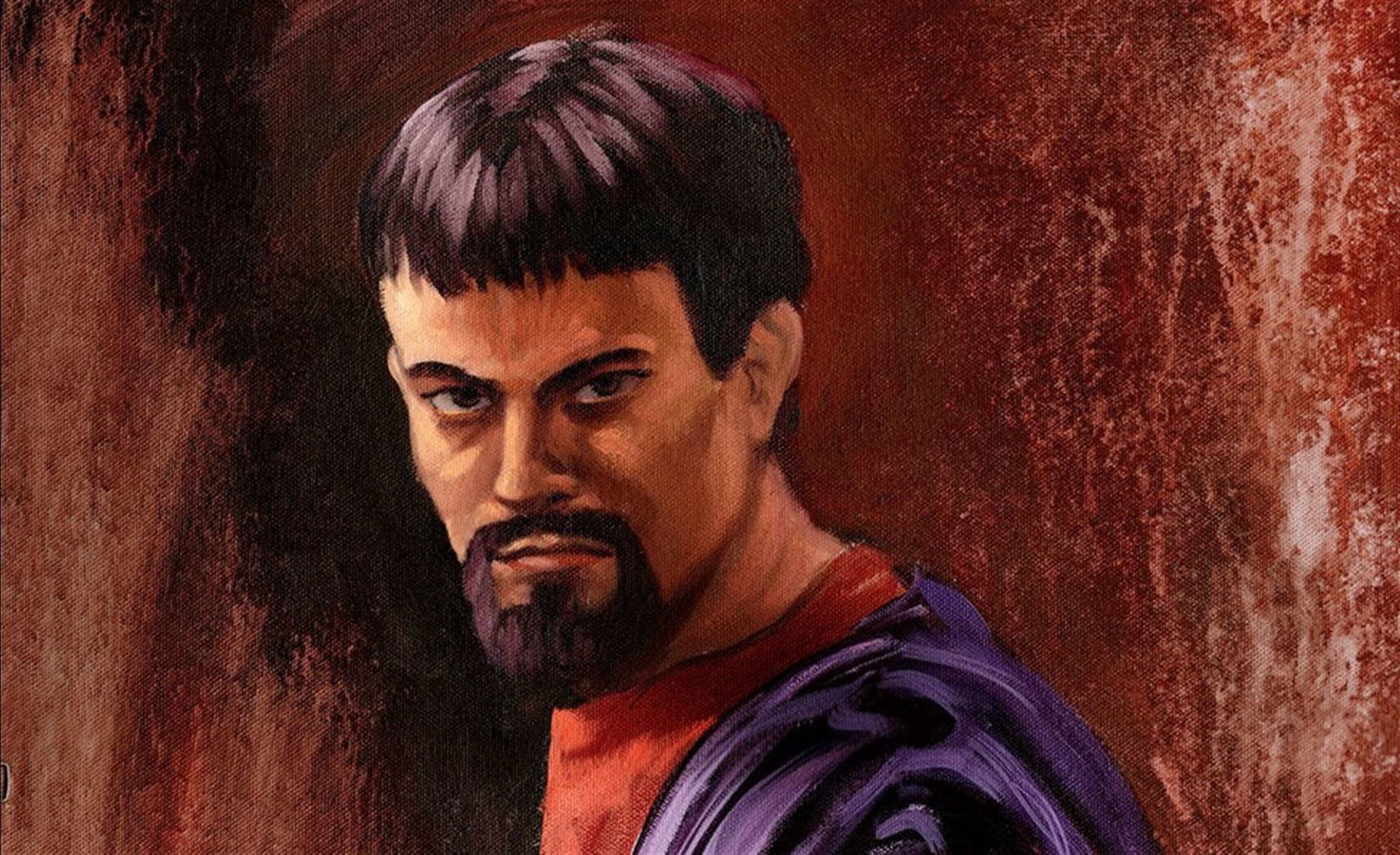Evidence #299 | January 17, 2022
Book of Mormon Evidence: Wordplay on Paanchi
Post contributed by
Scripture Central

Abstract
Wordplay on the name Paanchi is found in the account of the first murder of a Nephite Chief Judge and the organization of Gadianton’s band or robbers.The first chapter of the book of Helaman commences with the death of Chief Judge Pahoran, followed by contention over who would fill the judgment seat. Pahoran’s three sons—Pahoran, Paanchi, Pacumeni—were all contenders for the throne.1 When Pahoran was appointed by the people, Paanchi rebelled and was put to death for his crimes. In the aftermath of Paanchi’s death, his supporters assassinated Pahoran and organized a secret oathbound society which continued to afflict the people of Nephi for generations. The meaning of the name Paanchi fits right in with the narrative context of this pivotal Book of Mormon event.
Meaning of the Egyptian Name Paanchi
Paanchi is a form of the Egyptian name p3- ʿnh and was popular between the 21st–27th dynasties (1069–404 BC).2 The name means “the living one.”3 The etymology can have reference to a divinity (“the Living God”) or can denote a child or person who lives.4 The lexeme ʿnh also had other secondary meanings. Matthew Bowen observes,
Perhaps the most important secondary meaning of ʿnh as a verb was to “swear” and as a noun it also meant “oath.” For example, the Demotic conditional legal formula iw=f ir p3 ʿnh meant “If he swears…” Hence, as a sentence name, Paanchi could, at least from a phonological perspective, connote or evoke not just “the living one,” but also “he [the deity] is my (life-) oath” (p3 “He” + ʿnh=i “my [life-] oath) or “he [the deity] is my swearing,” etc … Both ancient Israelites and ancient Egyptians swore oaths by the life of the deity.5
Life and Death
Mormon recounts, “but behold Paanchi [‘the living one’] and that part of the people that were desirous that he should be their governor was exceeding wroth” (Helaman 1:7), but as he began to organize a rebellion “he was taken and was tried according to the voice of the people and condemned unto death” (Helaman 1:8). Bowen notes the irony of the living one being condemned to death.6 When Paanchi’s band of supporters “saw that he was condemned unto death, therefore they were angry, and behold, they sent forth one Kishkumen even to the judgement-seat of Pahoran, and murdered Pahoran as he sat upon the judgement seat” (Helaman 1:9). The death of Paanchi (“the living one”) was the pretext for the death of his brother Pahoran.
Wordplay on Swearing
Additional wordplay is apparent in the aftermath of the assassination. “And he [Kishkumen] went unto those who sent him; and they all entered into a covenant, yea, swearing [Egyptian: ʿnh] by their everlasting Maker, that they would tell no man that Kishkumen had murdered Pahoran” (Helaman 1:11).
In the next chapter, Mormon informs readers that the oathbound practices of murder, which began with the rebellion of Paanchi and the murder of his brother Pahoran, would eventually lead to “the overthrow, yea, almost the entire destruction of the people of Nephi” (Helaman 2:13). As Bowen notes, “The oath (cf. ʿnh) first sworn in support of Paanchi (‘the living one’) by his supporters, invoking the life of ‘their everlasting maker’ culminated in the eventual death of the Nephites as a society.”7
Conclusion
As with many other names in the Book of Mormon, the meaning of the name Paanchi is highly relevant to the narrative in which it is featured. Paanchi’s death, reported almost immediately after his introduction, ironically plays on its Egyptian meaning (“the living one”). Moreover, the ʿnh element in the name meaningfully foreshadows the murderous oathbound societies that were created in response to Paanchi’s death.
Wordplay based on the etymology of an Egyptian name popular at the time of Lehi, however, cannot be attributed to Joseph Smith’s information environment. Egyptian could not be read until long after the Book of Mormon was published in 1829. As such, this authentic Egyptian name constitutes another evidence for the authenticity of the Book of Mormon and the Egyptian linguistic heritage of its ancient writers.
Matthew L. Bowen, “‘Swearing by Their Everlasting Maker’: Some Notes on Paanchi and Giddianhi,” Interpreter: A Journal of Latter-day Saint Faith and Scholarship 28 (2018): 155–170.
“Paanchi,” Book of Mormon Onomasticon, last updated November 11, 2017, online at onom.lib.byu.edu.
- 1. Pacumeni is killed during an invasion of the Lamanites led by the dissenter Coriantumr (Helaman 1:21).
- 2. See Evidence Central, “Paanchi, an Attested Egyptian Name,” Evidence# 0167, March 15, 2021, online at evidencecentral.org.
- 3. Erich Luddeckens, et al., Demotisches Namenbuch (Wiesbaden: Dr. Ludwig Reichert, 1983), 1.3:162; “Paanchi,” Book of Mormon Onomasticon, last updated November 11, 2017, online at onom.lib.byu.edu; Matthew L. Bowen, “‘Swearing by Their Everlasting Maker’: Some Notes on Paanchi and Giddianhi,” Interpreter: A Journal of Latter-day Saint Faith and Scholarship 28 (2018): 159–164.
- 4. “Mortality rates—not least infant mortality rates—were extremely high in the ancient world.” Bowen, “‘Swearing by Their Everlasting Maker’,” 160.
- 5. Bowen, “‘Swearing by Their Everlasting Maker’,” 160.
- 6. Bowen, “‘Swearing by Their Everlasting Maker’,” 164.
- 7. Bowen, “‘Swearing by Their Everlasting Maker’,” 169–170.